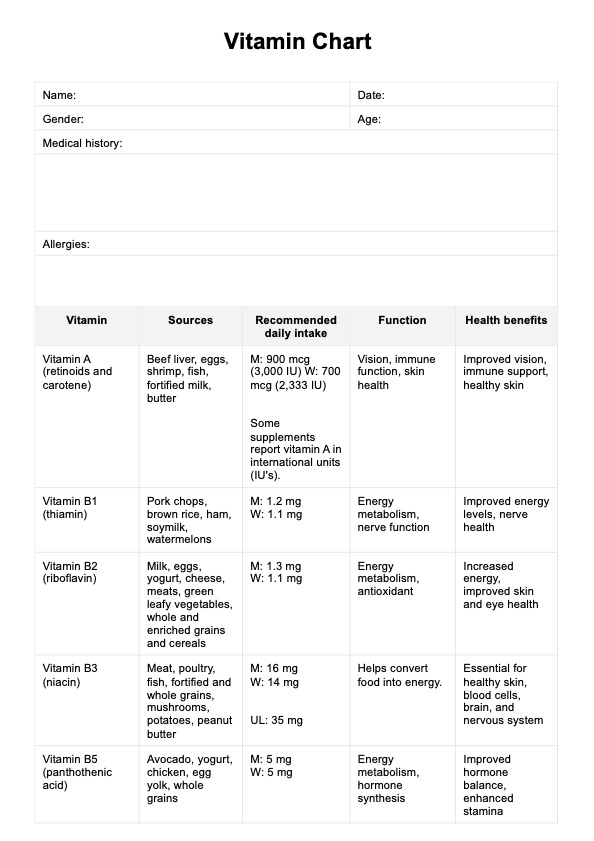The Vitamin Chart provides essential information about vitamins and minerals, aiding individuals and healthcare professionals to understand nutritional requirements for optimal health.

Vitamin Chart
Discover the importance of vitamins for optimal health with our comprehensive Vitamin Chart. Learn about functions, sources, and dietary recommendations.
Use Template
Vitamin Chart Template
Commonly asked questions
Minerals and vitamins complement various bodily functions, ensuring a balanced intake supports overall health and wellness.
Yes, by comparing with recommended daily intakes, the Vitamin Chart can help individuals identify potential deficiencies or excesses, guiding adjustments to maintain optimal health.
EHR and practice management software
Get started for free
*No credit card required
Free
$0/usd
Unlimited clients
Telehealth
1GB of storage
Client portal text
Automated billing and online payments











